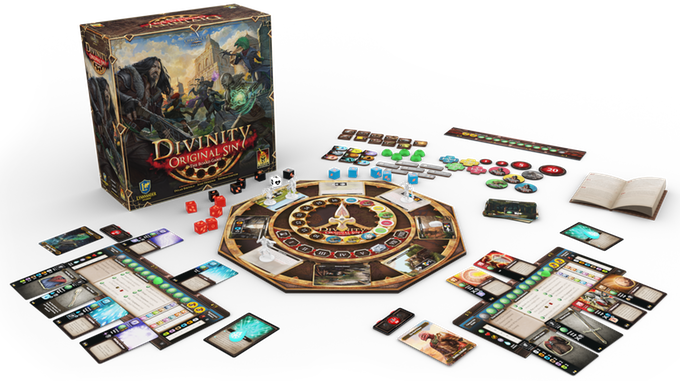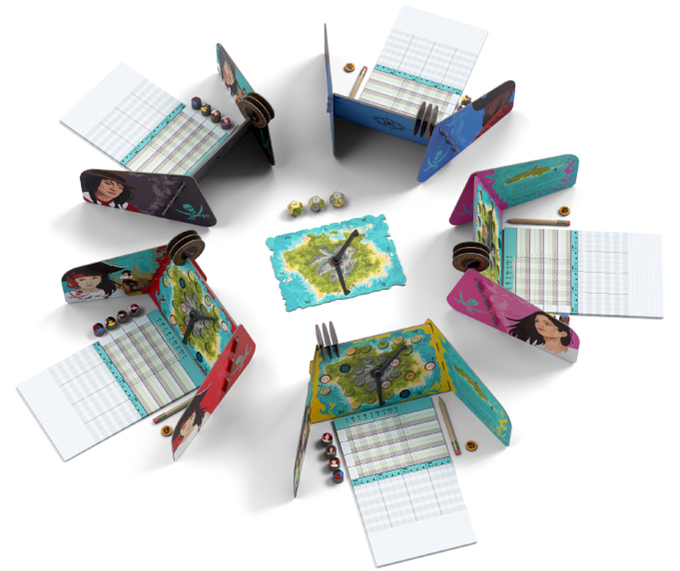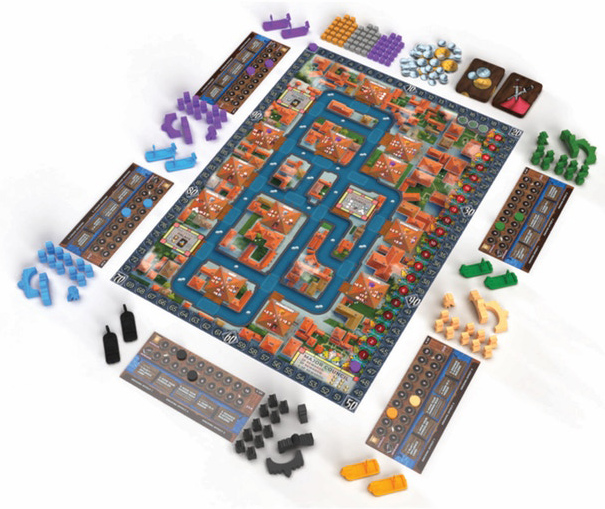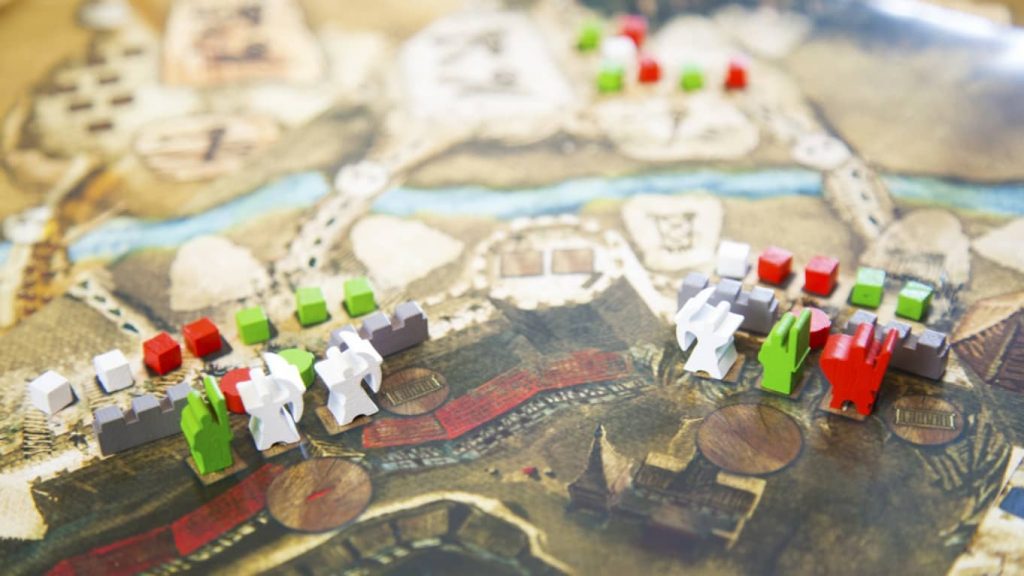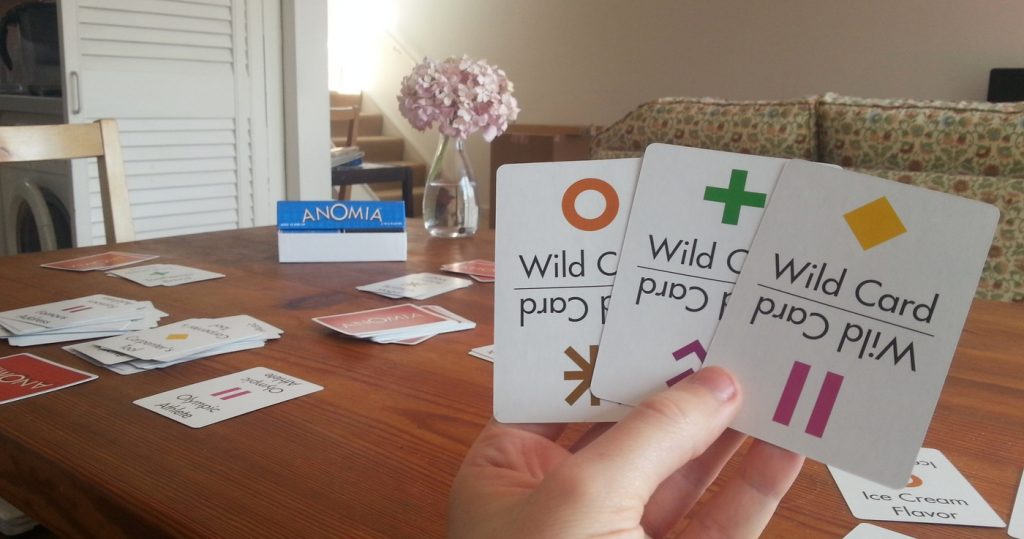Ava: Happy December, my beautiful news-children. It’s the season of barging around shops, loads of social obligations, wrapping up work and presents, slow news days, and it being really, really hard to stay sober. This week we’re focussing on what I optimistically like to call ‘presents for your future self’, but might more accurately be called ‘gambling on games that have limited incentive to actually be good because they’ve already sold out their stock before they started production’.
Sorry about the cynicism, honestly. I have a finite amount of Christmas Cheer, so I have to be really grumpy for most of December in order to still have some in reserve for the actual festive period. It won’t last all month, I secretly love Christmas.
(I am secretly fond of a Kickstarter too, though as I’ve said a hundred times, I’d really feel a lot more positive about them if they recognised Kickstarter United formally as a union)
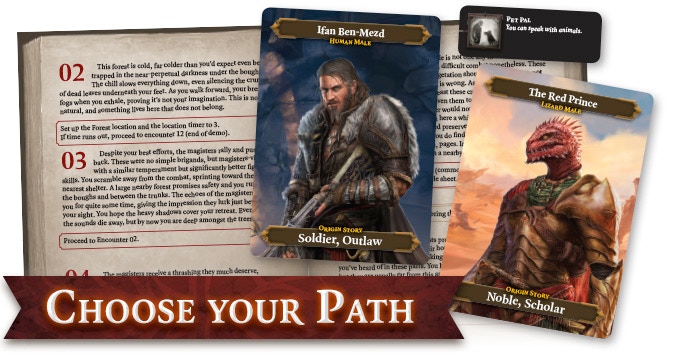
Divinity: Original Sin, Larian’s explosively playful role-playing video game is getting a tabletop edition, and I’m baffled by its promise to turn what looks like a giant clock into a sprawling narrative epic with tense tactical combat. Check our our SHUX Preview video for the details.
I had to skip through the high production value am-dram of the official video. I’m just too tired for bad acting in good armour, even if everyone does look like they’re having a lot of fun. Scrubbing through did at least reveal the promise of the possibility of everyone catching on fire, which I understand to be a fundamental part of the video game.
Divinity offers exploration and combat, action points and elements. Everything unfolds on an abstracted central board, with a huge range of cards used to represent locations, options and enemies. You’ll balance a range of different tactical and moral decisions, and update a chronicle that keeps track of anything that could affect your next game. It sounds like a smorgasbord of ideas that we’ve already seen elsewhere, but I suspect Larian will put their own spin on all of it.
Loot of Lima is a lovely looking Cluedo-clone, promising a little less wasted time and some crunchier deduction than the mainstream murder mystery mansion.
Using a colonial backdrop without casting you as colonisers, players are trying to recover a stash of gold stolen from the Spanish after it was stolen from the natives of Lima. Tokens representing each of the locations on an island are shuffled and two are stashed away to represent the actual treasure trove. The rest are handed out, letting each player know where they’ve already searched and found nothing. Finally, dice are rolled each turn to allow players to interrogate each other about the information they’ve gleaned.
It sounds like a nasty knot of logic-puzzling on a pretty little island, and the art is really charming.
Braincrack Games are touring the trading capitals of Europe by moving from Ragusa to Venice. Venice is an economic game built around navigating the canals of the eponymous city.
With two gondolas, but only one gondolier, you’ve got to balance your plans between two different routes around a cityscape made up of possible actions. Staying on the same boat comes at a cost, even though that might be the better plan. A similar weight rests on how far you move. One space is free, but you can move as far as you like if you’ve got the cash. Flexibility comes at a cost.
Venice grabbed my eye partly because I’m still curious about Ragusa, and partly because it promises a range of player actions that made me chuckle. You’ll be completing contracts, enhancing workers, performing combos, building bridges and avoiding arrest. Pretty sure this is an accurate description of a union rep on a beered-up holiday? It’s even got rules for meetings.
I’m charmed by the lovely art and if nothing else, I really want a little wooden gondolier.
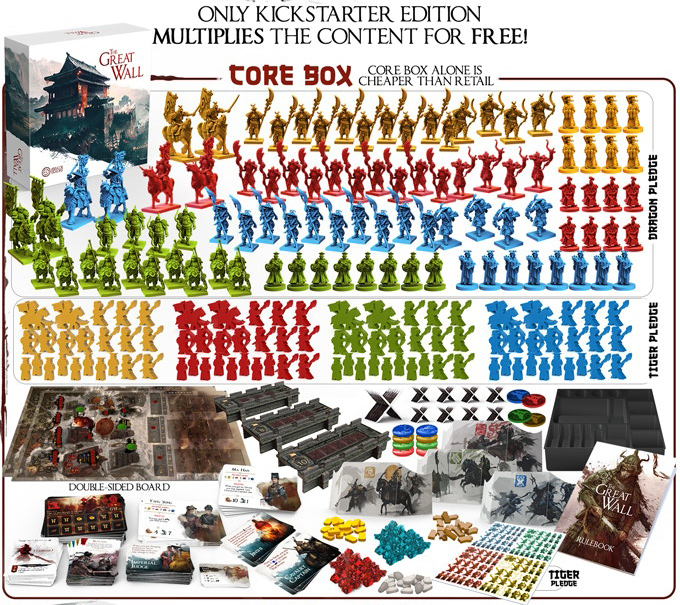
Speaking of temptingly tiny wooden pieces, next we’re looking at The Great Wall, an elaborate offering from Awaken realms, which comes in deluxe mini or discount wooden flavours.
Players will be getting into rucks and building a famously large wall, like some kind of over-ambitious and slightly aggressive bricklayer. A general gives each player asymmetrical powers that can be expanded further with advisors, and there’s some troubling timing issues as actions only trigger once enough players have decided to send workers to complete them. Add in a slowly-growing great wall that requires correctly balanced armies to be useful, and there could be some chewy decisions here.
It’s unusual to see Awaken Realms delve into something more like a traditional economics and efficiency game, rather than the baroque narrative structures they’re known for. It’s also definitely nice of them to offer a cut price wooden option that still has quite a lot of fancy looking pieces in it. I’m curious to see how well this fares.

I’m bundling together a selection of oddities for our ‘and finally’ finale. Partly because it’s just three little unusual things to look at, and partly to apologise for leaning so hard on kickstarter this week. Here goes.
The Boardgame Detective has brought together a selection of writers, creators and designers and asked them all ‘what does a 10 out of 10 game mean to you?’ It’s a curious little thought experiment, and it’s nice to see a range of answers. Mine would be that it just means something that when I think about playing it, my heart skips a beat. It doesn’t need to be actually perfect, just thrilling enough that I’d never turn it down. According to my board game geek ratings, so far only Mottainai and Mage Knight have earned that accolade.
The incredibly talented Kwanchai Moriya, one of gaming’s best illustrators, got profiled by a Thai news site, and it includes a nice little English language video. Moriya talks about his career, what game art means to him and what’s going on in the industry at the moment. It’s clearly for a wider audience than just board game fans, but it’s a lovely video.
Finally, I’m hiding this at the end, because we’ve already mentioned Cole Wehrle’s upcoming, ambitious epochal narrative sandbox Oath, but I really, really enjoyed his latest design diary. It includes some critical analysis of his mega-hit Root, and digs deep into the weirdnesses of victory points, and what they actually mean. It’s a topic I’m really fascinated by, the semiotics of one of the most abstracted and arbitrary elements of board games, and Cole’s position that it almost always refers to some form of ‘legitimacy’ is really interesting to me. It’s worth a look whether you’re excited for Oath or not.

